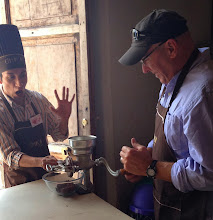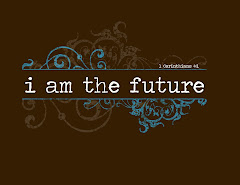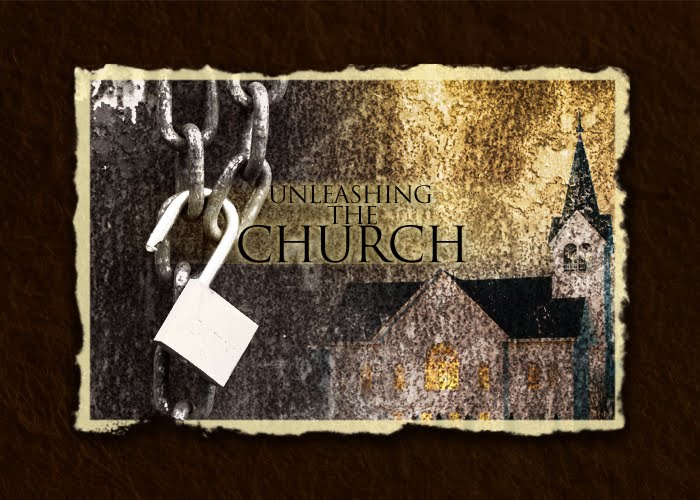I have had the privilege of working with a government housing project for several years in DC. It is an African-American community so almost all the residents that live there are African-American. The director of this program reported to me recently that by some estimates, 35% of African-American boys and 11% of African-American girls between the ages of 10 and 17 regularly use drugs. Those are staggering figures and fueled I think by the environment that has been created. It shocks me,and is testimony to the failure of government trying to solve the problem of low-income families in this and every other community. How did we get there?
The War on Poverty may have started with more fan fare than either the Parachurch Movement or Suburbia; but it played a lesser role in creating the Fortress Mindset in America’s churches. Still it played a significant enough role to make it one of our four pillars.
The federal government was engaged in welfare prior to 1964. But the Great Society/War on Poverty signaled the beginning of new era of massive government involvement with the poor. Skeptics of the day said that the primary purpose of the new domestic war was to divert attention from our increasing and unpopular involvement in that other war of the 1960s, i.e. Viet Nam.
Whatever the motive, Lyndon Johnson launched his domestic war with great enthusiasm and fanfare. Those of us who were working on church staffs in the 70s and 80s remember how arrogant and difficult government welfare workers could be. Their attitude for the three decades following 1964 was typically, “we have the money and the expertise to eradicate the evil associated with poverty. So just stay away from the poor, because we have things under control.” That all changed in drastic fashion in the 1990’s.
The War On Poverty: A Social Viet Nam
It is ironic that the War on Poverty paralleled the war in Viet Nam. In both cases the government assured the American public that it knew what it was doing. And from the vantage point of the early 21st century both ventures are now seen as disasters.
Here is a view of the War on Poverty and the Great Society from thirty years later, 1994.
“In recent years, faith in activist government has declined precipitously. The cause is not just Viet Nam and Watergate but rather the fateful turn liberal activism took with Lyndon Johnson and the Great Society. Not content with the great middle-class programs like Medicare, Johnson launched a War on Poverty that has since poured trillions down a vast federal sink-hole, leaving little trace- indeed coinciding with a dramatic rise in crime, homelessness and deviancy of ever sort.” (Charles Krauthammer, Time. September 5, 1994).
What the government didn’t realize when launching its War on Poverty is that money and expertise are not the answers. Effective answers to welfare problems must deal primarily with issues of the heart and dignity. “Dignity is sacrosanct, and when it is abrogated, there is a heavy price to pay.” (Somebodies and Nobodies, p. 132). Of course that doesn’t mean that government can’t play a role in helping the poor. Nor does it mean that nothing good came out of the War on Poverty. But we think Krauthammer is right, there was very little “bang for the buck.”
Followers
Subscribe to:
Post Comments (Atom)
About Me

- Rich
- I am a slave to no man or institution. I have worked with Frank Tillapaugh for thirty years and most of the ideas are work we would like to share.
The next generation

God thank you for two amazing young leaders
Looking Forward

Each year I get to spend time with young leaders and the gap is growing between them and my generation, why?
Popular Posts
-
I have watched new pastors burn out in less than a year...why? Fuller Institute did a survey and found that 80% of pastors believe that past...
-
General Calling and Special Calling Soon after the Roman emperor, Constantine, converted to Christianity in 315 A.D. churches began to profe...
-
I saw one of my friends (Wes, he is a follower of this blog, God bless him) tonight and he told me after reading this blog he was surprised ...
-
When 20% of the people do 80% of the work in a church, the church leaders usually think that they have an 80% problem. ...
-
I am taking a break from my series to talk about something that just happen. I just met Gavin, he arrived today. His parents Dan and Steph C...
-
If we ask, “what would Jesus do in His new body, i.e. the church; that would be a continuation of what he did in his original body?” The ans...
-
And, believe it or not, a strong emphasis on edification does not often generate mission. Mission potential isn't dependent on how well...
-
Several years ago my friend Frank took a walking tour in London that ended up at Wesley’s chapel. As the tour group ap...
-
Nothing influences the environment of a church as much as the preaching. It is through preaching that people understand how their pastor vie...
-
Ok yesterday I had one response to my blog and while it was thoughtful I was reminded that words on a screen do not always convey the experi...

No comments:
Post a Comment